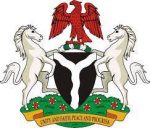By Ejiogu Paul
Nigeria will be celebrating her 60th Independence Anniversary on October 1, 2020. For some, it is not a time to roll out the drums or pump champagne but a time to reflect soberly.
Based on statistics, the country has continued to battle with surviving the high cost of living in the country. Many Nigerians also say they have lost trust in Political campaign promises.
CHALLANGES OF THE COUNTRY
In previous years, Nigeria has occupied an undesirable position in global terrorism, poverty rate, global innovation rate, unemployment rate, infant and child mortality, corruption perception index and even good governance; although the government has said it is making efforts towards fighting this menace.
According to an Australia-based institute for economics and peace, Nigeria remains the third most impacted country in terrorism as of 2019, since 2015. Nigeria has retained this unfortunate position and the Global Terrorism Index further shows Iraq and Afghanistan ranked worse than Nigeria.
National Bureau of Statistics published a report in May 2020 which says that more than 83 million Nigerians are currently living below the national poverty line.
In regards to Global Innovation Index, Nigeria is ranked 121st out of 131st countries, dropping seven places. Recent release unemployment data by the National Bureau of Statistics shows that Nigeria’s unemployment rate was 23.1% in Q3 2018, confirming it increased by 4% points between Q3 and second quarter of 2020. Transparency International has ranked Nigeria 146 out of the 180 countries on its 2019 Corruption Perception Index.
While many analysts say the statistics are depressing, average Nigerians believe that Nigeria can do more than it is doing currently.
In recent times, there have been attempts at reforms, with policies aimed at recuperating the economy, however the economic challenges remain very huge. Economic challenges, ranging from unemployment, corruption, disproportional taxes and benefit, devaluation of the national currency and poor infrastructure management, insecurity, over reliance on oil, foreign exchange policy and inadequate power supply.
Opposition parties over the years have accused the sitting government of lacking will to deliver the country even-though there is a believe that the political structure in the country leaves Nigerians with no political party to trust.
No doubt that in Nigeria; large portion of the country’s national budget is committed to servicing of debt which often affects state spending on other aspects of the country.
Nigeria’s foreign debt rose from 10.3 billion dollars in 2015 to 22.08 billion dollars in 2018. The recently released Nigeria’s public debt profile by the Debt Management Office (DMO) as at Q1’20 shows total public debt increased by 4.49%, from 27.40 trillion naira to 28.63 trillion naira recorded in Q4’19. In monetary terms, there was a 1.23 trillion increase in three months. As of first quarter of 2020, Nigeria public debt rose to 79.5 billion dollars (28.63 trillion naira). This is a 15% increase from the recorded figure in the corresponding period of 2019, at about 69.09 billion dollars (24.94 trillion naira). African Development Bank in its African Economic Outlook (2019) stated that about 50% of the country’s revenue is spent on external debt servicing which consume a good amount of projected expenses.
SOLUTIONS
It is important to note that until we find answers to our social and political issues, there won’t be significant change in the Nigerian economy. Resources for infrastructural development should be made available and the oil dependency issue should be tackled, thereby expanding other areas of the economy such as agriculture, etc. There is need to implement the right monetary policy in other for the Nigeria budget to stimulate economic growth. There has been calls for diversification of the country’s economy from time to time.
According to Adams Oluwadamilola Kemi, the private sector and small businesses should be developed which would create the initiative for economic growth and reduce unemployment in Nigeria. Diversification of Nigeria economy is valuable in economy growth and also, repairs of refineries in order to cushion the impact of drop in crude oil in the economy.
She noted that there is need for the government to tackle the issue of power generation and distribution in the country. A formidable economic policy that would apprehend the continuous decline in the economy of the nation to forestall the hardship experienced in the country. All agencies in charge of budget implementation should ensure well-timed implementation of nation’s budget.
In a publication by Infoguide Nigeria, for Nigeria to develop economically, efforts must be expended in developing human capacity and resource. The government should further curtail the issue of insecurity in the country.
The solutions to Nigeria economic problems are not farfetched. In light of the 60th Independence Anniversary, there is certainly light at the end of the tunnel for economy development in Nigeria.










